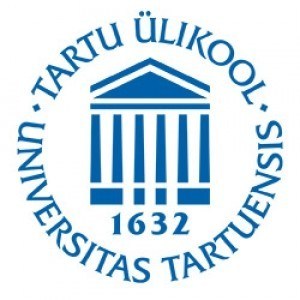Photos of university / #unitartu
The IT Law Programme offers a 1-year MA in IT Law at the University of Tartu, Estonia.
Designed for lawyers interested in pursuing careers in the field of information technology and cyber security, the programme trains highly qualified IT Law experts much needed at law firms, IT companies, public agencies, international organizations, and consulting firms. The students will enjoy full access to UT services and full participation in all events of the IT Law Programme.
Practical focus: a significant part of teaching in this programme will simulate real-life situations. Students gain access to 30 IT Law practitioners and IT specialists from around the world participating in the programme. As consultants, lecturers, or mentors, they synchronize the legal education with the technical developments in the ICT sector.
Broad and comprehensive understanding of IT Law: we provide a systematic understanding of all major subfields of IT law as well as skills necessary for practicing in this area. Along with that, we create extensive links between technical, legal, and policy aspects of development and uses of ICTs, putting heavy emphasis on case studies, real-life exercises, trend assessments, and problem-solving.
The students will master a set of technical skills typically required in the ICT sector, e.g. elementary skills in programming, cryptography, database technology, and software engineering.
Graduates will be ready to provide legal advice on ICT related matters across jurisdictions and work anywhere in the world. They will be able to perform interdisciplinary and comprehensive regulatory, analytical, and expert work in the field of IT Law, having all necessary skills to face the challenges posed by the extraterritoriality, novelty, and complexity of its problems.
Estonia is considered an international leader in the field of IT for its technological and legal solutions as well as population that is open to technological advancements: We provide access to its best practices and cutting-edge developments.
General Admission Requirements
4-year Bachelor's degree in Law (240 ECTS) or equivalent qualification
English language proficiency.
Application Process
Submit an online application. Please upload the electronic copies of all required documents for your application. This makes the pre-processing of your application quicker and is especially important for candidates applying to more than one programme. You will receive an applicant code which gives you access to your account to track your application status.
Mail the required documents by the deadline to: International Student Service, University of Tartu, Ülikooli 18, Tartu 50090, Estonia
Participate in an admission interview in May.
Documents to be Submitted for Application
Online application
Letter of Motivation (please follow the link for guidelines and evaluation criteria)
Official copy of the Bachelor's diploma or its equivalent and Diploma Supplement (transcript/mark sheet) in the original language*
Official translation fo the Bachelor's diploma and Diploma Supplement (transcript/mark sheet) into English, translation certified
Proof of English language proficiency
Copy of the passport page stating the applicant's personal particulars.
The financing of the Master's Degree program in Information Technology Law at the University of Tartu is primarily supported through a combination of state-funded study places and self-funded options. Estonia's education system provides a significant number of state-funded spots for international and domestic students based on academic merit and competitive selection processes. These spots do not require tuition fees from the students, making the program accessible to talented students who meet the entrance criteria. Students admitted under state-funded quotas benefit from public funding, which significantly reduces their financial burden and enables access to high-quality education in the field of law and technology.
For students who do not secure a state-funded position, the program offers self-funded study options. These students are responsible for paying tuition fees, which are determined annually and are publicly available on the university's official website. The tuition fee for the Master's in Information Technology Law tends to reflect the program's specialized nature and the costs associated with delivering high-level legal and technological instruction. Typically, tuition fees may range depending on the course structure and duration but are designed to be competitive within the Estonian higher education market.
Additionally, students are encouraged to explore external funding opportunities. The University of Tartu offers various scholarship programs aimed at supporting international students and top-performing domestic students. These include merit-based scholarships, social scholarships, and research grants, which can significantly offset the costs of study. The government of Estonia also provides financial aid options, including student loans and grants, which applicants can consider to finance their education.
Furthermore, many students in the program seek part-time employment or internships within the IT and legal sectors to support their studies financially. The university's location in Tartu and its active partnerships with local businesses and organizations facilitate such opportunities. Students are also advised to look into external scholarship programs from European Union funds, private foundations, and international organizations supporting higher education.
In summary, the financing structure of the Master's program in Information Technology Law at the University of Tartu provides multiple avenues for students to fund their studies, including state-funded places, self-funded tuition, scholarships, government aid, and part-time work opportunities. This multi-faceted approach ensures that students from diverse backgrounds can access quality education and successfully complete their degree in the evolving field of law and technology.
The Master’s degree programme in Information Technology Law at the University of Tartu is designed to equip students with comprehensive knowledge and practical skills at the intersection of law and information technology. This interdisciplinary programme focuses on the legal aspects related to digital data, cybersecurity, intellectual property rights, privacy, digital contracts, and emerging technologies such as blockchain and artificial intelligence. Students will explore how legal frameworks are evolving in response to rapid technological advancements and will be prepared to advise on legal matters related to information technology in both national and international contexts.
The curriculum combines legal theory with practical application, including case studies, legal analysis, and participation in relevant projects. Throughout the programme, students will develop competencies in legal research, drafting legal documents, and policy analysis related to IT law. They will also learn about the technical aspects of information technology systems to better understand the underlying issues facing legal practice in this domain.
The programme is suitable for students holding a bachelor’s degree in law, information technology, computer science, or related disciplines who are interested in specializing further in IT law. The degree prepares graduates for diverse career paths including legal advisory roles in tech companies, cybersecurity firms, governmental agencies, or international organizations; policy development; legal consultancy; and academia.
Teaching methods include lectures, seminars, workshops, and individual research projects. Students will have the opportunity to participate in internships and collaborate with industry partners to gain practical experience. The University of Tartu’s strong focus on research ensures that students have access to the latest legal and technological developments. Graduates will receive a Master’s degree in Law with specialization in Information Technology Law, recognized internationally and providing a solid foundation for further academic or professional pursuits.
The programme emphasizes critical thinking, ethical considerations, and understanding the societal impact of technological innovations. Students will also learn about essential issues such as data protection laws (including GDPR), intellectual property management in the digital environment, e-commerce regulations, and the legal challenges posed by artificial intelligence and machine learning systems. Interdisciplinary cooperation with departments of law, computer science, and information technology ensures a well-rounded education.
Overall, the Master’s in Information Technology Law at the University of Tartu offers a unique combination of legal expertise and technological understanding, preparing students to meet the legal challenges of the digital age and contribute to shaping legal policies that foster innovation while protecting individual rights and societal interests.

